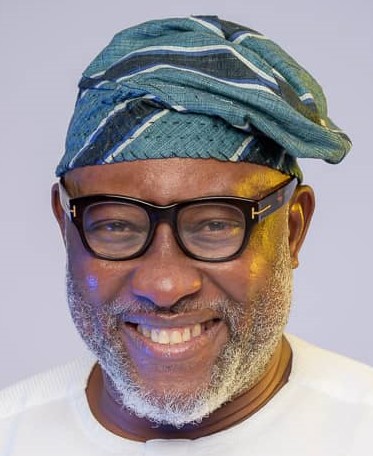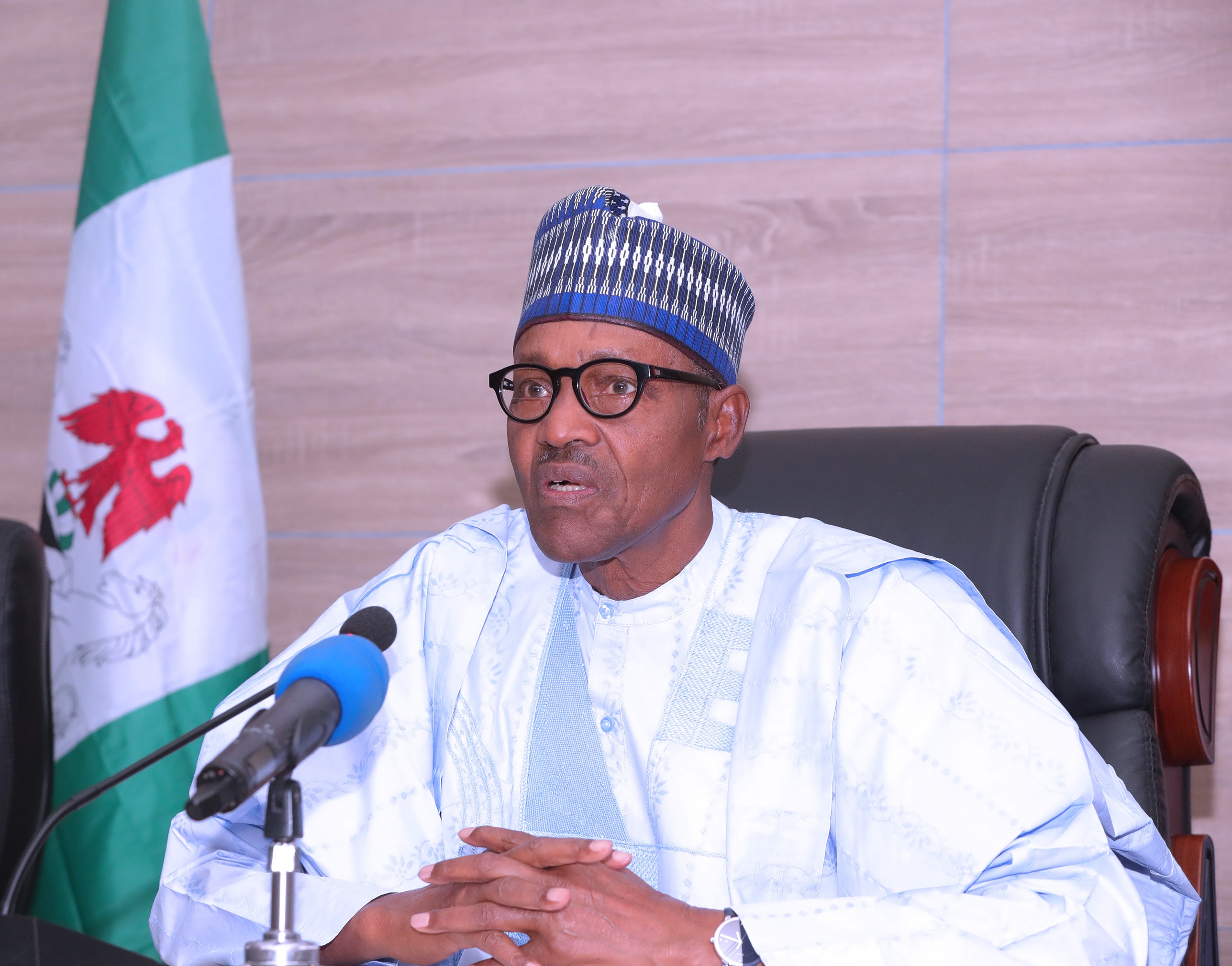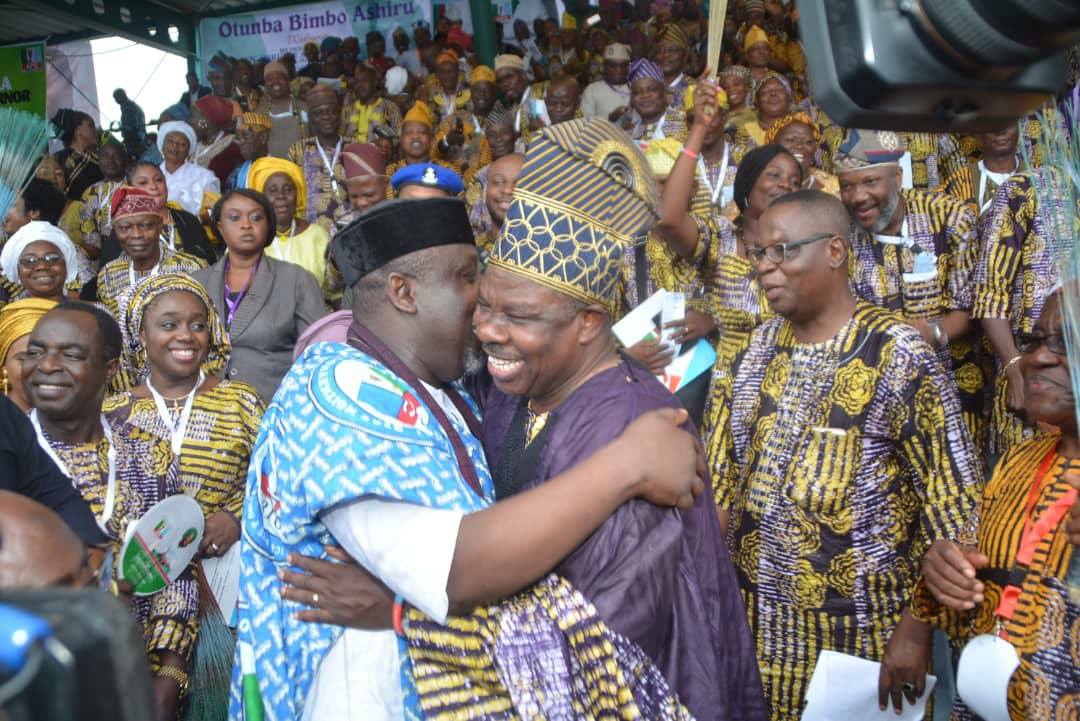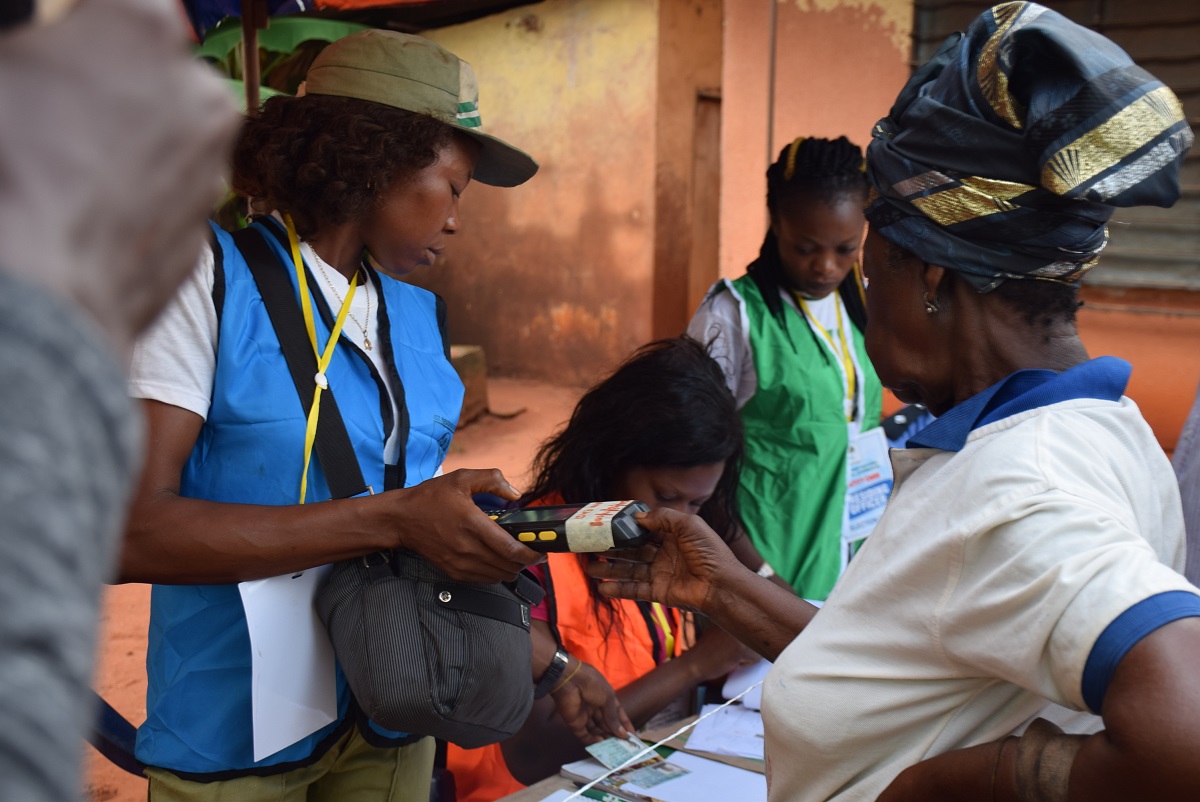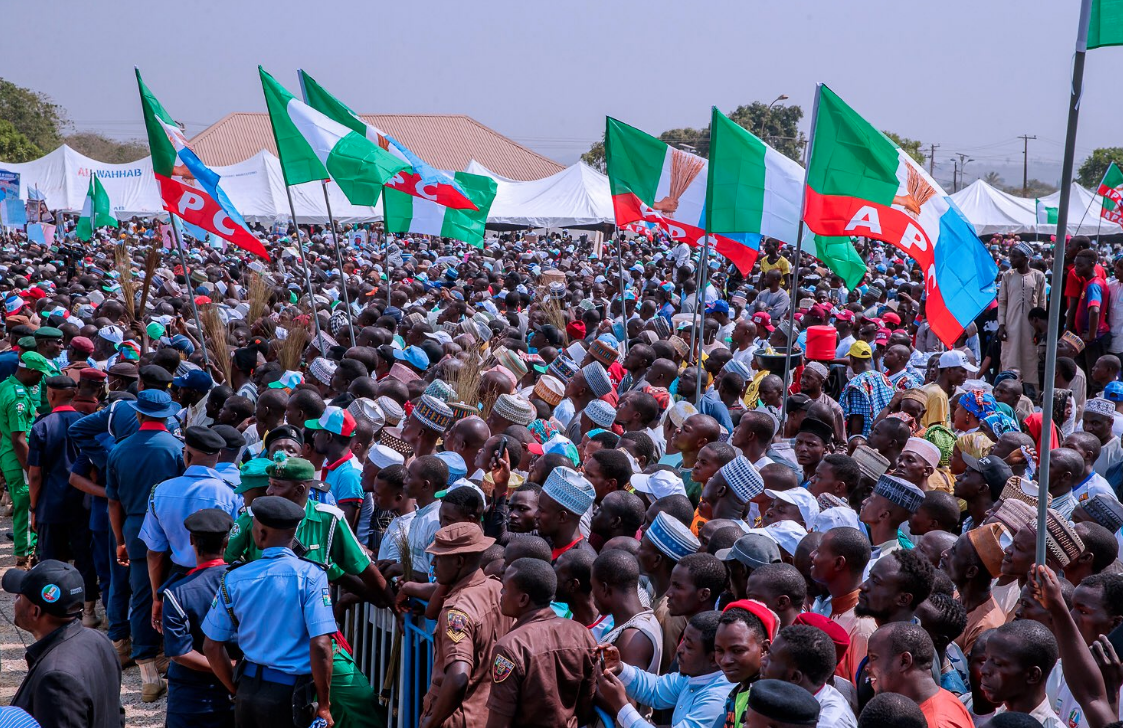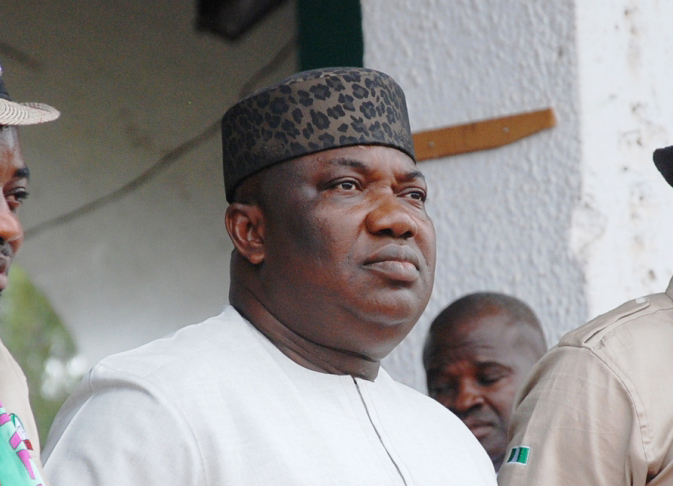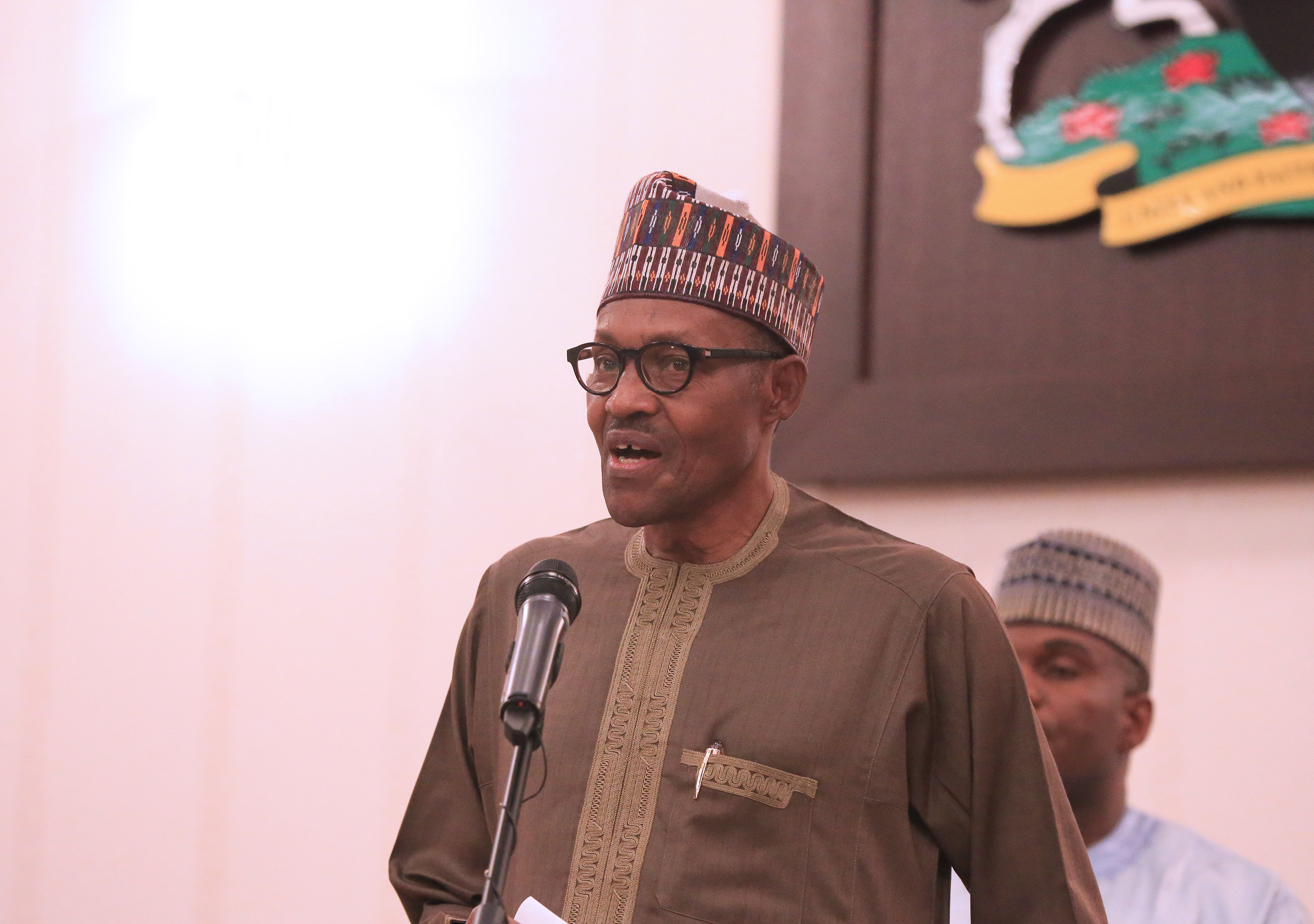PRESIDENT BUHARI AT THE CAMPAIGN FOR ACCEPTANCE SPEECH 0A. L-R; President Muhammadu Buhari addressing the Party Chieftain and Supporter during his acceptance speech at the Campaign office after INEC Declared President Buhari as President-Elect for the second term for the 2019 Presidential Election. PHOTO; SUNDAY AGHAEZE. FEB 27 2019
After all the apprehension, permutations and predictions by local and foreign actors, the Presidential election in Nigeria has come and gone with a winner, and many losers.
President Muhammadu Buhari who has been re-elected for another term of four years, in a very uncommon show of grace, called on his supporters be graceful to the losing side and that anything less at this period when the nation is bitterly divided and fractured will only heat up the polity, and allow wounds of defeat to linger and possibly fester.
Post-election, it is healing time, and focus should be on nation building. President Buhari must lead the charge by trying to unite through both words and action. He should start by using the remaining three months of his first term to bind the country together. The foreboding sense of neglect by a section of the country should be assuaged with assurances that the second term will be more equitable, inclusive, and sensitive to the needs of the people.
It is a fact that the current administration is ramping up investments in critical infrastructure across the country, with the last few weeks leading up to the start of the new term on May 29th seeing an increase in the pace of work on these projects especially road construction in order to give a new lease of life to Nigerians who commute daily and businesses that spend so much on distribution logistics. It is impossible to grow the economy to create much needed jobs the country urgently needs without critical infrastructure. While the President winds down his first term, he should begin to expand his horizon to assemble a team of credible and competent Nigerians that will help him deliver greater value in his second term. Granted that the first term was used to deal with a lot of inherited problems that slowed progress, no such excuses can be made during the second term and as such government must deliver in a timely and impactful manner. The most pressing challenge facing the government is unemployment and the resultant effect of poverty and it must be solved as a matter of urgency.
Advertisement
Nigeria needs a Marshall Plan and a team of committed managers that are really motivated to make the highly impactful changes necessary to deliver next level growth and development. President Buhari cannot afford to wait another six months to form his next cabinet. In fact, it is expected he will submit the list of his Ministers to the 9th Senate on June 9th when the new National Assembly will be inaugurated. The time to search for credible men and women, who Nigeria has in abundance, is now.
While the Presidential and National Assembly elections was largely peaceful across the country, save for few skirmishes in about four states, it is important to note that the Gubernatorial and States House of Assembly election, due to its localized nature, had more reported problems especially in Lagos, the commercial nerve centre of Nigeria.
Lagos is the most cosmopolitan state in Nigeria and its strength as the 5th largest economy in Africa is foregrounded in its diversity and assorted amalgamation of different ethnic and religious groups. The pulsating energy and creative vitality of Lagos as the cultural, sports and entertainment capital of not only Nigeria but also West Africa mirrors its plurality. This is a major reason why elections in Lagos should be peaceful and orderly and politicians must do their parts to eschew any politicking that will unsettle the social harmony and cohesion in the state. Lagos as the business capital and eyes through which the rest of the world looks at our country cannot afford any ethnic conflagration. It is time for the leaders of the two major parties All Progressives Congress and Peoples Democratic Party, faith leaders, traditional rulers, leaders of Socio-Cultural organizations and other leaders of thought should rally round and maintain the peace. Lagosians of whatever political persuasion should feel free to exercise their voting rights in electing their choice of leaders. Our politics since 1999 has matured to the point of politics without bitterness of any kind which was exemplified by the Late Alhaji Ibrahim Maziri of the defunct Great Nigeria Peoples Party (GNPP). Alhaji Waziri was an embodiment of political tolerance in a period when politicians exhibited naked power and use any means, however evil, to attain and retain political power. He showed us not by an example of his power, but by the power of his example that decent men and women can play politics when the objective is about service to the people.
Advertisement
Until recently when some politicians in Lagos retreated to ethnic cleavages political brinksmanship has been devoid of ethnic tension and for this, credit must be given to the political class in the state. Lagos politics has been less of thuggery and the brigandage that is common in other states in Nigeria. We must try to continue to maintain that standard.
The outcome of election in Lagos can actually reflect its demographics, a pattern that emerged in last election where Lagos has members of the State Assembly and House of Representatives that are Igbos. These are Igbo politicians who won their elections in Igbo dominated areas of Lagos. It shows the character of the state and it also helps the political parties to now begin to design winning strategies for the Igbo dominated areas of Lagos. Such strategy will factor in their political interests and aspirations. APC, PDP and other smaller parties can begin to consider Igbo candidates for these areas in future elections. That is blueprint to driving inclusiveness and political participation.
The Asiwaju, Bola Tinubu’s administration blazed the trail in Lagos in 2005 when he appointed Mr. Ben Akabueze, then a top banker into a senior Cabinet position as the Commissioner for Budget and Economic Planning. Mr. Joe Igbokwe has been the Publicity Secretary of the ruling party in the state for more than 16 years which I think is good for the political health of the state. Now is the time to sustain this tradition and deepen it to give the wider population more opportunity for political participation.
When Lagos continues to drive this change in our political evolution, the fire will catch on in other States like Kano, Kaduna and Rivers State States, for example, where we have sizeable population of Igbos and Yorubas who have lived for decades and even a generation in those states. States like Kano, Anambra and Kaduna, I am aware, have Special Advisers who are non-indigenes for inter-ethnic affairs. These are good steps at achieving harmonious and peaceful co-existence.
Advertisement
There cannot be investments and economic development in a state or country where there is strife and political instability. The poverty index in Nigeria is caused due to lack of investments by businesses that can create job for our young people.
Ethnic and identity politics that create instability must never be part of the political equation in Lagos. Lagos is too cosmopolitan and too matured as the economic powerhouse of Nigeria to be enmeshed in politics of hate and division.
Views expressed by contributors are strictly personal and not of TheCable.
